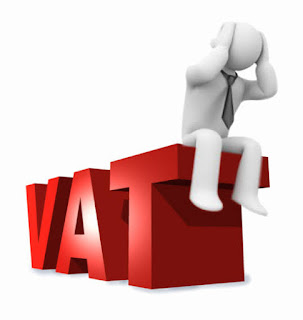VAT Rate In Nigeria: Everything you need to know
We’ve all been recipients of receipts bearing an amount with the description ‘VAT’.
So what is VAT?
What is the VAT rate in Nigeria?
Are we all expected to pay VAT?
You will find out in this very article.
What Is VAT?
VAT is the acronym for ‘Value-added tax’.
It is a tax paid on goods and services consumed by any person, whether individuals, business education, or government agencies.
Though the VAT is added to the price paid by the final consumer, VAT remittance to the authorities is done by the business supplying the goods or services.
There is the input VAT, which is payable on goods and services used for production or resale. And the output VAT which is payable on goods and services supplied.
VAT Rate In Nigeria
The VAT rate in Nigeria was formerly 5%, but an increase to 7.5% of the cost of goods and services was effected on the 1st of February 2020.
The increase was part of the 7 principal tax statutes amended by the Finance Act 2019 and following the drop in oil price, it was needed to increase government revenue.
Who Receives VAT?
The Government of Nigeria. Administration of the VAT rests in the Federal Inland Revenue Services (FIRS) according to Section 7 of the VAT Act.
Goods And Services Exempt From VAT
- Baby products.
- Commercial aircraft and vehicles
- Spare parts imports.
- Agricultural equipment.
- Basic foodstuffs and unprocessed foods.
- Residential accommodation.
- Medical and pharmaceutical supplies and services.
- Education and related materials.
- Books and newspapers, including papers for writing and printing.
- Services rendered by community banks, people’s banks, and mortgage Institutions
- Plays and performances conducted for educational purposes.
- Humanitarian initiatives.
- Public road transport services.
- Export services.
VAT Registration
Businesses supplying taxable goods and services must VAT register with the FIRS before providing their first sale.
However, businesses with an annual turnover below N25 million are exempted from registration.
A small business may voluntarily register, charge, collect, remit the tax and file monthly returns to FIRS, but must first notify FIRS.
A non-resident company making taxable supplies to Nigerian residents is expected to register for VAT using the address of the person receiving the supply or the fixed base of the company in Nigeria.
VAT Remittance
Businesses are to calculate the output VAT in a month and offset it with input VAT. If the output VAT is more, the business is owed a refund; if it is less, the business must remit the difference.
According to the VAT Act, remittance must be made on or before the 21st day of the month following the month when the purchase was made.
For a month when no supply was made, the business is to file a VAT return, but it is a NIL return, i.e. the amount written would be zero.
How Do I Remit VAT?
FIRS uses designated banks as collection agents for payments into the VAT pool account. You can use a FIRS pay-in-slip at the bank or online bank transfers.
Penalties For Defaulters
Failure of businesses to VAT-register attracts a fine of N50,000 (formerly N10,000) in the first month and N25,000 in subsequent months.
Failure of VAT remittance before the due date attracts a fine of N5,000.
VAT Modification By The FIRS
On 29th April 2020, the FIRS provided clarification on the VAT modification.
VAT now applies to the supply of intangible goods in Nigeria.
Services rendered to and consumed by a Nigerian outside Nigeria would not be liable to VAT.
A service is ONLY recognized as an exported service if it is provided by a Nigerian resident to a non-resident who must be outside the country when consuming the service.
The service is however not considered as export if:
the non-resident consumes the service in Nigeria.
the Nigerian resident provides a service to the fixed base of the non-resident.
If a service is provided to a consumer in Nigeria on behalf of a non-resident.
This is all you need to know about the VAT rate in Nigeria. I hope it was an enlightening read.

